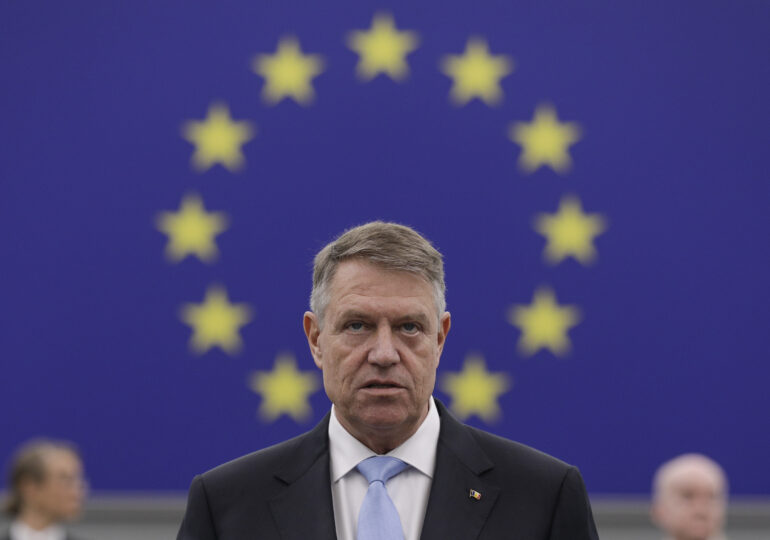In Brussels, there is intense speculation about who could be the new head of the European Commission after the elections in June.
Will it be Ursula von der Leyen again? The current head of the Commission is indeed still the favorite to secure a second term, but she cannot be sure of her position yet.
This means we have a new interesting game in town (mostly among politicians, diplomats, and officials who criticize the Commission chief) about who could get the position if not von der Leyen.
Politico has compiled a shortlist of names circulating, either as potential alternatives or just as a way to put pressure on Ursula von der Leyen to obtain various concessions.
The main candidates from the political families competing with von der Leyen are not on this list because it is unlikely that the European People's Party will give up the Commission presidency if it remains the largest political force in Brussels.
However, on the list, with quite high chances as estimated by Politico, is Klaus Iohannis.
Last month, Klaus Iohannis officially announced that he has decided to enter the competition for the position of NATO Secretary-General.
Here is how he is described, with arguments for and against:
Why? Romania’s president is seen as a steady hand and is a darling of European leaders, particularly among conservatives. Both Macron and German Chancellor Olaf Scholz have showered him with praise for keeping his country anchored in the pro-Western and pro-European camp after Russia’s invasion of Ukraine — which can’t be said of Hungary, Slovakia or Bulgaria. Unlike Poland, Romania also strictly observed EU single market rules and didn’t unilaterally impose restrictions on Ukrainian grain — strengthening Iohannis’ reputation as a pro-European team player.
Many argue it’s time for an Eastern European to lead the EU. If so, the German-speaking Iohannis is well-placed, hailing from the same EPP political family as von der Leyen. The decision by the EPP to hold its electoral congress in Bucharest also testifies to his standing among the group’s conservative leaders.
With his second term ending in December, Iohannis is looking for a top international job. Last month he agreed to run as NATO’s next leader — but that will be an uphill battle, given the widespread backing for Dutch PM Mark Rutte.
Why not? Iohannis’ last-minute bid to steal the NATO leadership role from Rutte has annoyed some Western European countries.
On this shortlist published by Politico, alongside Iohannis with equal chances, is also Croatian Prime Minister Andrej Plenković. Rated with lower chances are former Italian Prime Minister Mario Draghi, European Parliament President Roberta Metsola, IMF head Christine Lagarde, and European Commissioner Thierry Breton.
Recently, Euronews also wrote that Romanian President Klaus Iohannis is on the list of possible replacements for Ursula von der Leyen as head of the European Commission.
Noting that the European Union "has lost some of its shine" during von der Leyen's term, the analysis presents seven candidates who could take her place, including Iohannis, characterized as the "strategist."
Moreover, Iohannis is seen as a possible ace up the sleeve, a "rabbit pulled out of a magician's hat," with beneficial arguments being his affiliation with the EPP and the fact that he comes from an Eastern country.
Among the counterarguments, his candidacy for NATO leadership is also highlighted. Iohannis is rated with relatively good chances, having a positive image in the European Council.
Klaus Iohannis has not made any statement so far assuming his candidacy for any EU position, but he made some statements that lead us to believe that he would like that:
"It would be unacceptable for no position to be occupied by a person from the new member states, that is, from the East. I believe that in 2019, a mistake was made, all relevant positions were occupied by very competent people from old Europe, and it is one of the reasons why many Eastern Europeans feel left aside.
It's a mistake and it would be good not to happen again. These issues should never be neglected because they would deepen gaps that we prefer to be closed," said Klaus Iohannis on February 7, in Strasbourg.

